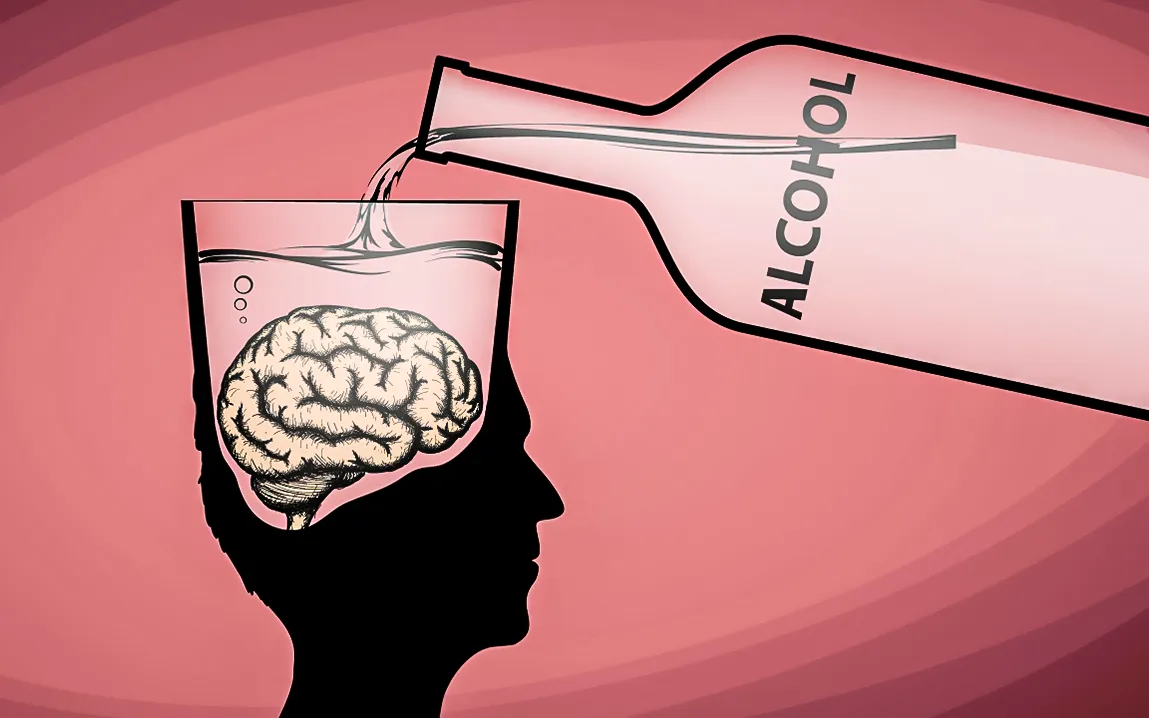Alcohol and brain health may have more significant risks than many people might assume. According to research published in Neurology, even moderate alcohol use may contribute to chronic brain damage, leading to further worries about dementia and cognitive decline.
To focus solely on natural aging and disease processes, researchers removed all instances of trauma from the postmortem brain assessment of 1,781 participants from Brazil’s São Paulo Autopsy Service. The participants were, on average, 75 years old and divided into four groups based on their self-reported drinking histories: never drinkers, moderate drinkers, heavy drinkers, and former heavy drinkers.
The findings were unsettling. The risk of hyaline arteriolosclerosis, an erosion and stenosis of the brain’s small blood vessels, for heavy drinkers, was a stunning 133% higher. Researchers found a strong association between this disease and lower cognitive function. Ex-heavy drinkers were not spared; their brains were smaller and showed more damage than those of non-drinkers.
Amazingly, researchers found no direct association between alcohol use and episodic cognitive function. It appears that vascular changes are the true culprit, which implies that alcohol first damages blood vessels and that, in turn, affects brain function. This finding expands our understanding of the way habits such as binge drinking cause subtle losses in mental sharpness.
Dr. Haris Kamal, a neurologist at Memorial Hermann who was not involved in the study, said, “Progressive thickening of the arteries and the buildup of abnormal proteins such as tau may eventually lead to cognitive impairment, including vascular dementia.” Furthermore, he said, the severity escalates with years of heavy drinking, age, and health risks.
Yet, there were limitations in the study. Researchers used family members to reconstruct drinking histories; this means there are gaps in some data. Also, the cross-sectional design means we cannot now claim that alcohol is a direct cause of dementia, only that the association is concerningly strong.
However, the evidence is persuasive. “Even moderate alcohol consumption appears to be associated with vascular changes in the brain,” said Dr. Alberto Justo, the lead author of the study. He indicated that future studies should examine the long-term use and patterns of drinking on cognitive health.
The takeaway is simple. Put simply, the less alcohol a person consumes, the better for brain health. Those planning to take steps to maintain a high level of cognitive vitality into their later years may subsequently make life-altering choices after discovering the hidden risks associated with even moderate drinking.



